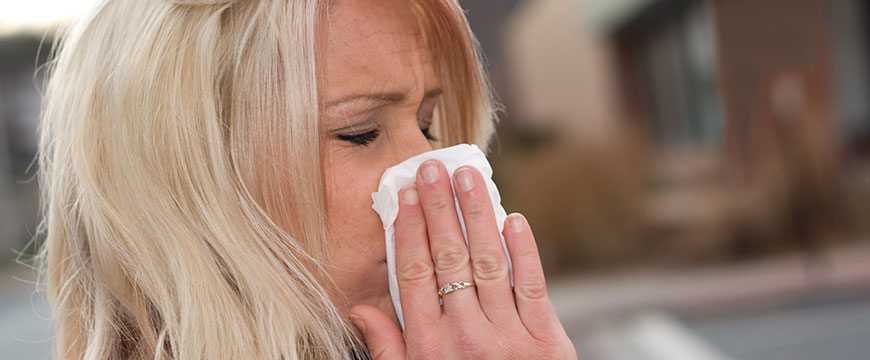
Transitioning from summer to fall is the time when people go back to school, but for those who suffer from allergies, the seasonal switch could mean an unwelcome change in the symptoms. For people who feel the fall pollen impacts like mold and ragweed, you are not alone in this. Allergic rhinitis symptoms, including runny nose and congestion, can affect millions of people in the USA every year.
Some states make these effects more compounded because of weather patterns that switch between dry and wet periods, which trigger the allergens released into the air.
You can ask your allergy doctor about fall allergy treatments, but you need to know why allergies are worse during the fall. Read on to learn more.
Ragweed
In the fall, ragweed surges so it spews pollen into the air and it causes classic nasal allergy symptoms such as sneezing, itchy eyes, and scratchy throat. While you cannot completely avoid ragweed pollen, you can do steps to reduce exposure. You need to keep your windows and doors closed. Use refrigerated air conditioning, if possible, but not an evaporative cooler. The best thing to do is to wear a NIOSH-95 face mask so you will not inhale pollen when going outside. Your respiratory system will thank you for this.
Mold
Mold is another allergy trigger in the fall. Normally, fall weather comes with cooler weather and rain. Once the fall foliage starts to decay, it will attract mold growth. Breathing mold aggravates asthma, which causes wheezing, heavy breathing, and other upper respiratory symptoms in mold allergies. If you want to make the most out of the cooler weather and enjoy the outdoors more, you might have to wear a mask while being out in the woods.
Heat
You might want to bask in the summer days that extend in autumn, but the warm air can extend the pollen season and trigger allergy symptoms in the fall. You must not give up the last days of summer in order to avoid a runny nose. If you want to keep symptoms controlled, avoid the outdoors when pollen count normally peaks. You can enjoy the late summer sun at dusk. You can also try avoiding chores like raking leaves and mowing grass, both of which can stir up mold spores and pollen.
Dust Mites
Everyone can agree that fall weather is the most comfortable because days are a little cooler and you might also have to turn on the heat to feel cozy. This could be the first time in a few months that you turn on the heating. This blows a lot of dust mites inside your home, which trigger wheezes, sneezes, and runny noses. That is why you should change the filter before running the heating system.
Pets
You might have realized that pet dander triggers allergy symptoms such as sneezing and a runny nose. However, did you realize that your pet can worsen fall allergies? Cats and dogs that play outside can collect ragweed pollen inside their fur and bring it inside your home. After you go inside, the pollen can disperse into the air easily and cause misery for those who suffer from fall allergies. If you want to avoid this, make sure to wipe your pet using a damp towel before you allow it back indoors after being outside.
Heat
The warm air that could extend to pollen season and trigger symptoms of fall allergies. You would want to stay indoors in those last days of summer to avoid the symptoms. Stay indoors in the morning because it is when pollen count normally peaks.
You can visit allergist Germantown MD if you have fall allergies.

